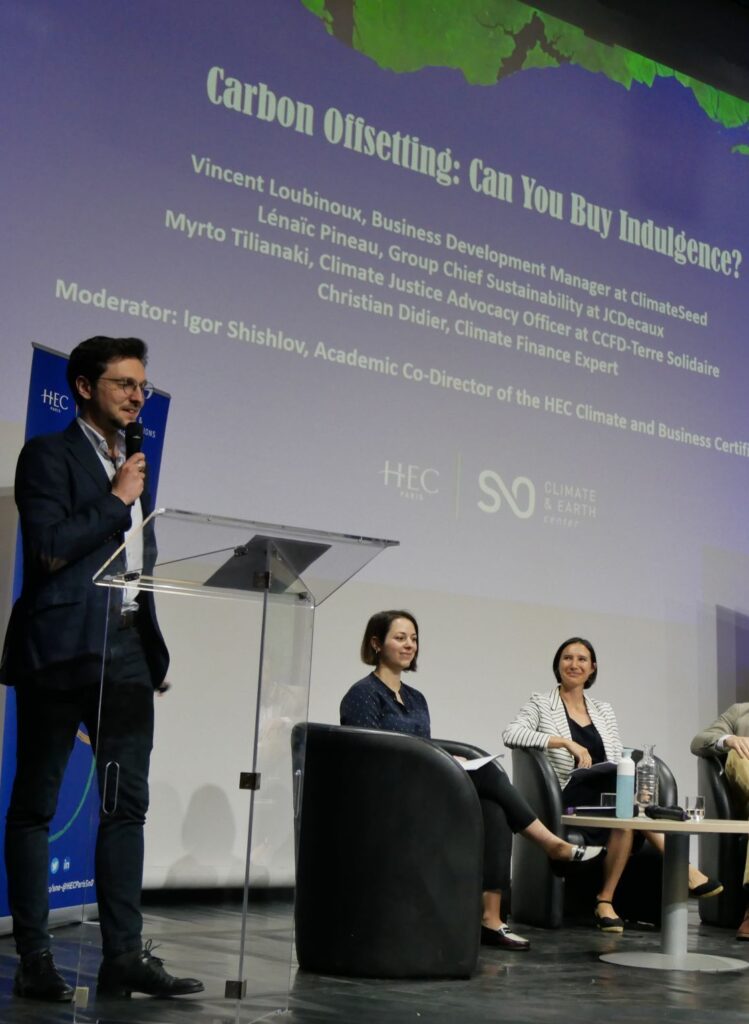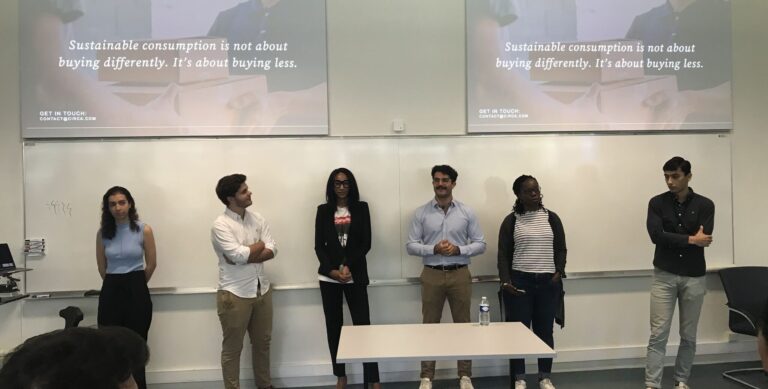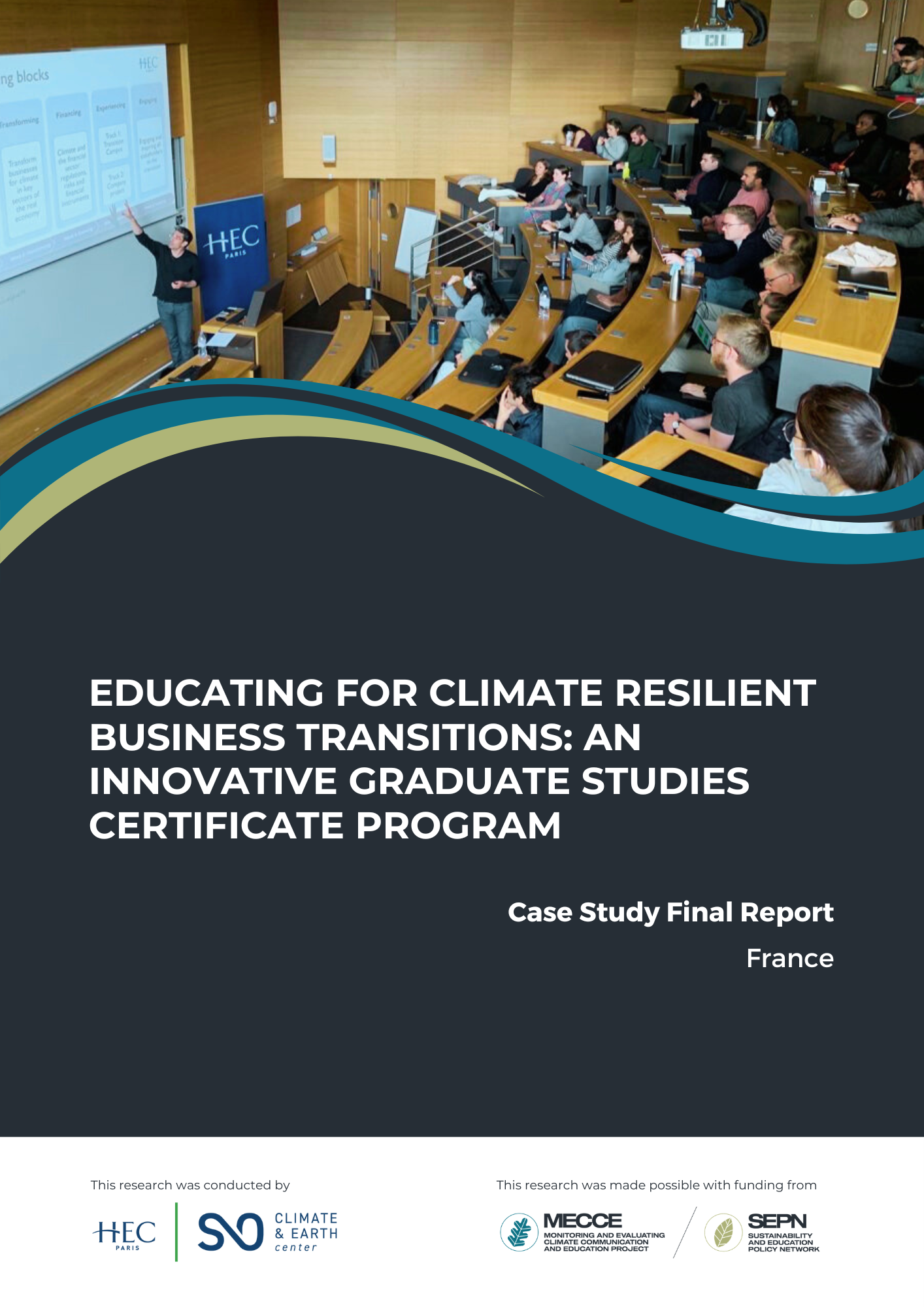Educating for Climate Resilient Business Transitions: An Innovative Graduate Studies Certificate Program
This case study brings climate change to a sector that does not necessarily engage with climate change: business. The case study highlights both the importance and potential of widespread climate education.
“While business education may not immediately appear to be linked to climate change, only through mobilizing the private sector’s resources to be in line with climate-oriented goals will countries reach the Paris Agreement’s objectives."
While HEC Paris offers a range of Bachelor, Master, and Doctoral programs, the school was missing an intentional focus on climate education. HEC Paris launched a Climate and Business Certificate in 2022 to help prepare business students to navigate climate change and decarbonization from both a business and societal perspective.
The Certificate is a five-week intensive program that approaches climate change from three key learning dimensions: cognitive, social/emotional, and action/behavioral. Each week, students focus on different building blocks of climate education for business: understanding, transforming, financing, experiencing, and leading. In essence, students are taught about the socio-economic stakes of Net Zero transitions at a macro level, as well as the micro-financial implications of this transition for business. Students also learn the practical skills of how to engage with a variety of climate stakeholders to advocate for climate-friendly business development.
In practice, the development of the Climate and Business Certificate program involved the cooperation of a range of stakeholders. This is because another key part of HEC Paris’ journey towards increasing climate education in their institution is the prominence of participatory practices in the development of their program.

The Climate and Business Certificate was developed through numerous iterations, with feedback from the Dean of HEC Paris, professors involved in sustainability-related courses and research, representatives of the Society and Organizations Institute, two sustainability student associations, and corporate partners.
The lectures and discussions that take place during the program echo this commitment to participatory practices. Presentations are delivered by industry leaders, academics, policymakers, and representatives of NGOs. This was intended to provide a comprehensive overview of climate issues as related to corporate sustainability.
“By offering this breadth of presentations, the certificate also aims to provide students with a wide range of perspectives on addressing climate change issues in the business sector, as well as reasons businesses should consider climate change when making strategic and operational decisions.”
The participatory approach also helps ensure all stakeholders—from corporate partners to students—are on board with the program’s content. Maintaining a high level of ongoing engagement from stakeholders enables HEC Paris to keep its program up to date with the newest available climate science and business practices, ensuring the best education for its students.
This case study ultimately highlights the importance of implementing CCE within business school curricula. Business schools are an important avenue for shaping the way that future business leaders consider and address climate change when developing their businesses, and in their everyday practices. The Climate and Business Certificate demonstrates the potential of effective climate education in shaping the business leaders of tomorrow to help achieve a carbon neutral future.

The MECCE Project is grateful to researchers at HEC Paris for conducting this case study


INTERACTIVE DATA PLATFORM
Our interactive data platform provides users with the ability to analyze and visualize the MECCE Project’s case studies, country profile, and global indicator data.
Learn More about the MECCE Project

DIGITAL LIBRARY
Visit our open access repository for project materials, including policy briefs, factsheets, guidelines, infographics, reports, and videos.

GLOBAL CCE BLOG
We discuss emerging issues in climate communication and education to respond to the area's rapidly evolving policy environment and public discourse.

REGIONAL HUBS
Learn how to join our growing global network, which supports regional input and action on climate communication and education.

